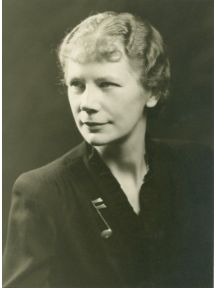Louise Talma
Items 1 -10 of 17
-
 Alleluia In Form Of Toccata
Alleluia In Form Of ToccataStandard Binding (P2551): $9.99 Digital (P2551D): $6.99 Download (P2551D-PDF): $9.99 Piano -
 Dialogues for Piano and Orchestra
Dialogues for Piano and OrchestraScore and Parts (C881): Rental Full Score (CY753F): $130.00 Full Orchestra
 The music of American composer Louise Talma (1906-1996) balances intense lyricism and piquant harmonies with textural clarity and an elegant, “classical” sense of form. Talma's prolific output includes music for orchestra, solo and choral voices, opera, chamber ensemble, and solo piano.
The music of American composer Louise Talma (1906-1996) balances intense lyricism and piquant harmonies with textural clarity and an elegant, “classical” sense of form. Talma's prolific output includes music for orchestra, solo and choral voices, opera, chamber ensemble, and solo piano.
A series of highly successful early works display a refined charm and the influence of Gallic neoclassicism, before a turn in the 1950s toward serial techniques. Despite the shift in working methods, Talma’s style remained chiefly melodic, expressive, and colorfully scored. Alongside non-programmatic works (Piano Sonatas; Etudes; Toccata for Orchestra), Talma wrote many pieces following autobiographical (Terre de France; Infanta Marina), religious (Voices of Peace; Alleluia in Form of Toccata), or political impetus (Dialogues; Have You Heard? Do You Know?)
Among Talma’s numerous honors are three honorary doctorates, two Guggenheim Fellowships (the second woman to receive one, and the first woman to receive two), two grants from the National Endowment for the Arts, and performances by major orchestras across the United States. Talma was also the first woman elected to the National Institute of Arts and Letters, the first woman to receive the Sibelus Medal in Composition, and the first American woman to have a full opera staged in Europe.
Talma studied piano with Isidor Philipp, and composition with Nadia Boulanger, with whom she would remain lifelong friends thereafter. She became a dedicated educator herself, teaching at Hunter College for over fifty years, as well as at Manhattan School of Music, and at the American Conservatory at Fontainebleau. She developed a close association with MacDowell Colony, where she spent many summers composing, and to which she bequeathed $1 million in her will.
A book-length monograph of Talma’s life and work, Louise Talma: A Life in Composition, by Kendra Preston Leonard, was published in 2014.
